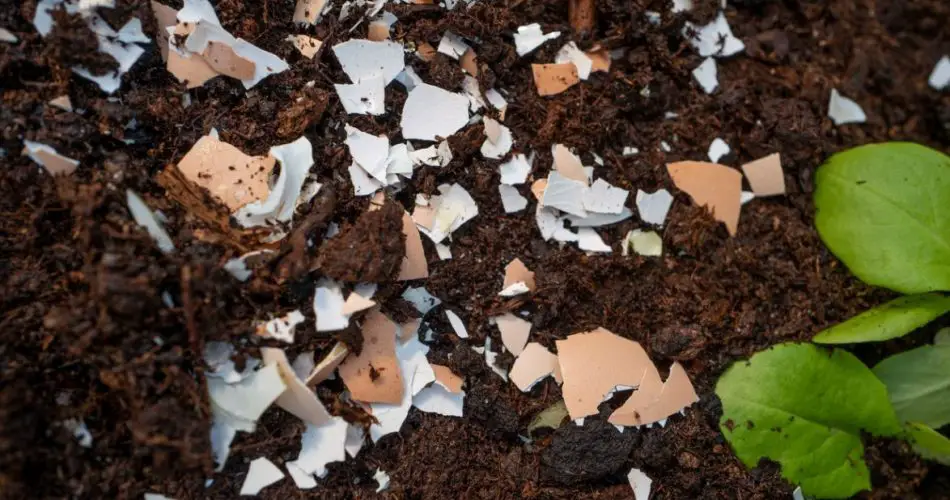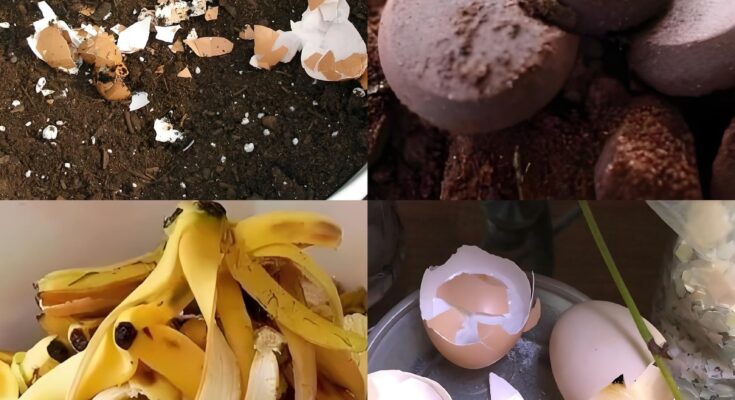
20 homemade fertilizers whose ingredients you already have at home
Creating your own homemade fertilizers is a great way to feed your plants with natural nutrients while recycling kitchen scraps and other household waste. Here are 20 easy-to-find ingredients you can use to make effective plant fertilizers at home:
- Coffee Grounds – Rich in nitrogen, coffee grounds can be sprinkled directly onto the soil or added to your compost.
- Eggshells – Crushed eggshells add calcium to the soil, which is vital for plant cell growth.
- Banana Peels – High in potassium, banana peels can be buried whole near the roots of plants or steeped in water to make a liquid fertilizer.
- Cooking Water – Water used for boiling vegetables contains nutrients. Let it cool and use it to water plants.
- Wood Ash – Wood ash from a fireplace can be sprinkled in small quantities to add potassium and calcium to the soil.
- Aquarium Water – When changing the water in a freshwater aquarium, use the old water for plants as it’s rich in nitrogen and other nutrients.
- Epsom Salt – A source of magnesium and sulfur, Epsom salt can be dissolved in water and used to feed plants, promoting healthy growth.
- Grass Clippings – As they decompose, grass clippings release nitrogen back into the soil.
- Leaf Mold – Decomposed leaves (leaf mold) enrich the soil and improve its texture.
- Green Tea – A weak solution of green tea can provide nutrients to plants. Be sure to use unsweetened tea.
- Molasses – Adding molasses to compost or diluting it in water can help increase microbial activity and provide potassium.
- Weeds – Weeds soaked in water create a nutrient-rich “weed tea.” Just ensure the weeds haven’t gone to seed.
- Compost – Regular composting of kitchen and garden waste provides a balanced mix of essential nutrients and improves soil structure.
- Seaweed – Fresh or dried seaweed can be rinsed (to remove salt) and added to compost or steeped in water to create a liquid fertilizer rich in trace minerals.
- Gelatin – Unflavored gelatin is a source of nitrogen. Dissolve it in water to create a protein-rich feed.
- Vinegar – Diluted vinegar (preferably apple cider vinegar) can help increase soil acidity and provide plants with iron.
- Powdered Milk – Milk powder is a good source of calcium and can be sprinkled directly into the soil or dissolved in water.
- Corn Gluten Meal – A byproduct of corn processing, corn gluten meal can serve as a natural pre-emergent weed inhibitor and fertilizer.
- Chicken Manure – Well-composted chicken manure is a high-nitrogen fertilizer but should be used sparingly to avoid burning plants.
- Paper Ash – Ash from burned non-glossy paper can be used in small amounts to add potassium and help control pests.
By using these homemade solutions, you not only provide your plants with essential nutrients but also contribute to a more sustainable gardening practice.



